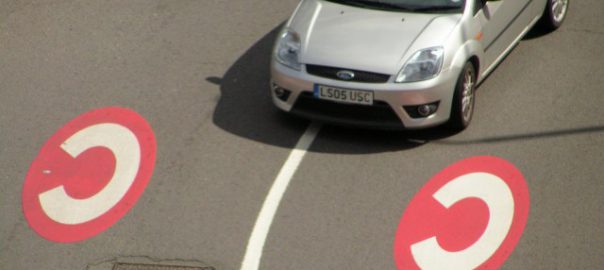[10 June] Sooner or later, it can happen in a romance: the two parties decide they’re just not that into one another.

The state of California dumped hybrid-electric vehicles on July 1, 2011, when it ended the rule that allowed them to use carpool lanes on freeways even with just one occupant.
Now the city of London is ending its affection for hybrids, too—and there’s even a date. It’s June 24, just two weeks from today.
That’s when hybrid drivers, who were previously allowed to enter central London’s Congestion Charge zone without paying the stiff fees (now £11.50, or roughly $16.50) that are levied on conventional vehicles during weekday business hours, have to start paying up.
The old system of charges permitted vehicles with emissions rated at 75 to 100 grams of CO2 per kilometer to enter the congestion zone for free. Those were almost entirely hybrid cars.
That plan was supplanted in July 2013 by an Ultra-Low Emission Discount plan that only allows cars or vans with CO2 emissions of 75 g/km or less to enter for free—and they must meet Euro 5 emission limits as well.
But owners of cars in the 75-to-100 g/km band were given a two-year grace period, which is now coming to an end.
Not only hybrids but even ultra-efficient European small diesel cars fall above the 75 g/km limit, so pretty much any car that will be let in free is now going to have a plug.
The majority of those may well be plug-in hybrids, including larger vehicles like the Mitsubishi Outlander Plug-In Hybrid and a slew of newer plug-in hybrid luxury SUVs.
There will also be battery-electric vehicles, everything from the Mitsubishi i-MiEV and its Citroen and Peugeot siblings to the Tesla Model S and Model X.
Electric cars, of course, have tailpipe emissions of 0 g/km.
And as Electric Cars Report noted this week, Nissan UK has been quick to take advantage of the impending change with a new marketing campaign.
The company is offering an additional £500 ($710) incentive to owners of older hybrid vehicles when they purchase a new Nissan Leaf electric car.
The Leaf is manufactured at Nissan’s Sunderland assembly plant in the north of England, and it’s the U.K.’s best-selling battery-electric car in both 24-kwh and 30-kwh versions.
At the end of June, many hybrid drivers will be “waking up to a bit of a ‘hybrid hangover’,” noted Nissan’s Edward Jones, “facing ongoing costs of almost £3,000 a year to drive [their] cars into the Congestion Charge zone.”
Nissan is more than happy to help with the hangover.
After all, sometimes finding a nice new paramour is the best way to recover from being dumped by the old one.
Source: Green Car Reports
